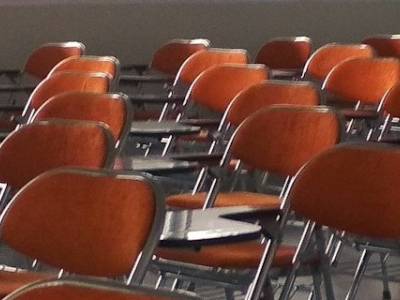Hey, all. I wanted to make this thread to gather all of you that intend to do an LL.M on arbitration / dispute settlment this year. As almost every program has already released its offers, it is time for most of us to come to a decision.
As for me, I applied to QMUL (London program), QMUL (Paris program), the MIDS and to SciencesPo. I got admitted for both QMUL's programs and for the MIDS. SciencesPo has not yet released results, as far as I'm aware.
Before applying, I also considered Stockholm (ICAL) and MiamiU, but finally decided not to apply to those programs.
What are your main concerns about the above programs (or any other program you considered)? I guess everybody has done its own research and is clear about the good side of every program, but what about the sad face of each program?
As a Latin American (Guatemalan) who finished the LL.B a year ago and has been working for a year (in a law firm, but not a relevant experience when it comes to arbitration / dispute settlement), these are my main concerns:
1. QMUL (London): I am worried about this being a "too academic" program and that it will not open as many professional doors as other programs. Other thing: the description of each course does not specify who will be in charge of it. I guess they will be pretty much the same than in the Paris program (which does specify who will be teaching each course -outstanding faculty, although not as varied as other programs). Top research program and super involved with arbitration scholars, and Loukas Mistellis seems to be involved full-time in the program (both London and Paris).
2. QMUL (Paris): This program is sold as one made for professionals who want to increase their expertise on dispute resolution. QMUL describes it as a program that puts together a class of recently graduated lawyers, young professionals and experienced professionals. Hence the "flexible" approach of the program. All good, apparently, as the diverse experience among the program will be enjoyable and will provide great networking opportunities with classmates. What worries me is that the networking might not get that good when it comes to professors, as the flexible approach means that you will receive a lot of intensive sessions throughout the program, but, at the same time, you will not have lengthy general courses. Thus, I guess that you won't have that closeness with the faculty. You don't get access to all the physical resources from QMUL London, either, but, from, what I've read, they make every effort for you to have anything you need.
3. MIDS: Gabrielle kaufmann-Kohler. Anything else? It has been discussed in other threads that one of the few disadvantages of the MIDS might be that it comprises a lot of subjects among dispute settlement. Besides that, do you feel too that it lacks a little of hands-on approach? Finally, Geneva. I don't have anything against Geneva, but I do have a preference for living in London or Paris. Plus, I would want to work in one of those cities. Do you think that doing the LL.M in London / Paris will give you a better chance of working in London / Paris?
4. SciencesPo: My only concern with this program is that it is brand new. Nonetheless, this could also mean that they will make a bigger effort to be in the same level as the rest of the programs. Thing is, one cannot tell. Courses are all intensive, apart from two general courses each term. But yes, Mr. Gary Born teaches one of the general courses...
5. ICAL: Does anybody noticed that almost half -if not more- of the whole LL.M is taught by one person? Any insights on this? Please note that I am talking about last years' program (2017's is not available, as far as I know) As good as Patricia Shaughnessy might be (and she is, she's had an impressive career in the US), I am not sure about the lack of variety that this might offer. And, besides that, once again, my preference for other cities above Stockholm. Mr. Born taught one intensive course last year, among others.
6. MiamiU: I want to work in Paris or London. The US would not give that good of a exposure in that sense. And Miami is not that appealing for me. Jan Paulson, though....
I hope that everybody can share a piece of knowledge in here....
Arbitration / Dispute Settlement: Time for a decision
Posted Apr 06, 2017 18:17
As for me, I applied to QMUL (London program), QMUL (Paris program), the MIDS and to SciencesPo. I got admitted for both QMUL's programs and for the MIDS. SciencesPo has not yet released results, as far as I'm aware.
Before applying, I also considered Stockholm (ICAL) and MiamiU, but finally decided not to apply to those programs.
What are your main concerns about the above programs (or any other program you considered)? I guess everybody has done its own research and is clear about the good side of every program, but what about the sad face of each program?
As a Latin American (Guatemalan) who finished the LL.B a year ago and has been working for a year (in a law firm, but not a relevant experience when it comes to arbitration / dispute settlement), these are my main concerns:
1. QMUL (London): I am worried about this being a "too academic" program and that it will not open as many professional doors as other programs. Other thing: the description of each course does not specify who will be in charge of it. I guess they will be pretty much the same than in the Paris program (which does specify who will be teaching each course -outstanding faculty, although not as varied as other programs). Top research program and super involved with arbitration scholars, and Loukas Mistellis seems to be involved full-time in the program (both London and Paris).
2. QMUL (Paris): This program is sold as one made for professionals who want to increase their expertise on dispute resolution. QMUL describes it as a program that puts together a class of recently graduated lawyers, young professionals and experienced professionals. Hence the "flexible" approach of the program. All good, apparently, as the diverse experience among the program will be enjoyable and will provide great networking opportunities with classmates. What worries me is that the networking might not get that good when it comes to professors, as the flexible approach means that you will receive a lot of intensive sessions throughout the program, but, at the same time, you will not have lengthy general courses. Thus, I guess that you won't have that closeness with the faculty. You don't get access to all the physical resources from QMUL London, either, but, from, what I've read, they make every effort for you to have anything you need.
3. MIDS: Gabrielle kaufmann-Kohler. Anything else? It has been discussed in other threads that one of the few disadvantages of the MIDS might be that it comprises a lot of subjects among dispute settlement. Besides that, do you feel too that it lacks a little of hands-on approach? Finally, Geneva. I don't have anything against Geneva, but I do have a preference for living in London or Paris. Plus, I would want to work in one of those cities. Do you think that doing the LL.M in London / Paris will give you a better chance of working in London / Paris?
4. SciencesPo: My only concern with this program is that it is brand new. Nonetheless, this could also mean that they will make a bigger effort to be in the same level as the rest of the programs. Thing is, one cannot tell. Courses are all intensive, apart from two general courses each term. But yes, Mr. Gary Born teaches one of the general courses...
5. ICAL: Does anybody noticed that almost half -if not more- of the whole LL.M is taught by one person? Any insights on this? Please note that I am talking about last years' program (2017's is not available, as far as I know) As good as Patricia Shaughnessy might be (and she is, she's had an impressive career in the US), I am not sure about the lack of variety that this might offer. And, besides that, once again, my preference for other cities above Stockholm. Mr. Born taught one intensive course last year, among others.
6. MiamiU: I want to work in Paris or London. The US would not give that good of a exposure in that sense. And Miami is not that appealing for me. Jan Paulson, though....
I hope that everybody can share a piece of knowledge in here....
Posted Apr 07, 2017 14:12
Hi!
Hope you are doing well. I applied to the MIDS and UM; thus, below I will share some lines I wrote in another post a few months aog, hopes this proves useful. By the way I'm from Latin America as well (Venezuela).
1. MIDS: (Traditional European education with leading scholars and renown practitioners, highly regarded in the international community).
a. Faculty:
i. Strong faculty.
ii. Seems they have among their faculties more people engaged in academia than practitioners. However, the practitioners involved in the program are highly regarded in the international arbitral community.
iii. Combining the faculty of both organizations, in my opinion, is a huge advantage.
b. Curriculum:
i. Well rounded and with plenty of choices to complement courses only devoted to arbitration matters.
ii. Again, combining faculty of both institutions may be a guarantee of the quality of the courses.
c. Networking:
i. Seems like they offer a lot of opportunities to attend networking (whether social or academic) events.
d. Job Placement after the Program:
i. From what I have heard seems to be more focus in Europe.
ii. Agreement with the PCA to place a student each year.
2. UM: (American education, gaining momentum from the people involved in the program and growing at an accelerated rate).
a. Faculty:
i. Strong faculty, lead by some of the most recognized practitioners in the field.
ii. Not so many academic renown names, other than Mr. Hunter who is an institution in the field.
iii. Not sure about the faculty outside of the program.
b. Curriculum:
i. Well rounded and with plenty of options.
ii. However, I am doubtful regarding the quality of the other courses, since there is no much information of the faculty outside of the LL.M. program.
c. Networking:
i. Americans basically invented the term, so you will get plenty of opportunities to network with practitioners and scholars involved in the field.
ii. Also, I believe that the fact that some of the leading practitioners in the field are involved in the program may be advantageous to get a recommendation or to meet other people involved in the field.
d. Job Placement after the Program:
i. More focused in the US.
ii. Have read that they offer plenty of opportunities to work as interns for firms or research assistant for professors during the program itself.
iii. Strong ties to W&C which is one of the leading firms in the field, may be something good.
Regards,
Hope you are doing well. I applied to the MIDS and UM; thus, below I will share some lines I wrote in another post a few months aog, hopes this proves useful. By the way I'm from Latin America as well (Venezuela).
1. MIDS: (Traditional European education with leading scholars and renown practitioners, highly regarded in the international community).
a. Faculty:
i. Strong faculty.
ii. Seems they have among their faculties more people engaged in academia than practitioners. However, the practitioners involved in the program are highly regarded in the international arbitral community.
iii. Combining the faculty of both organizations, in my opinion, is a huge advantage.
b. Curriculum:
i. Well rounded and with plenty of choices to complement courses only devoted to arbitration matters.
ii. Again, combining faculty of both institutions may be a guarantee of the quality of the courses.
c. Networking:
i. Seems like they offer a lot of opportunities to attend networking (whether social or academic) events.
d. Job Placement after the Program:
i. From what I have heard seems to be more focus in Europe.
ii. Agreement with the PCA to place a student each year.
2. UM: (American education, gaining momentum from the people involved in the program and growing at an accelerated rate).
a. Faculty:
i. Strong faculty, lead by some of the most recognized practitioners in the field.
ii. Not so many academic renown names, other than Mr. Hunter who is an institution in the field.
iii. Not sure about the faculty outside of the program.
b. Curriculum:
i. Well rounded and with plenty of options.
ii. However, I am doubtful regarding the quality of the other courses, since there is no much information of the faculty outside of the LL.M. program.
c. Networking:
i. Americans basically invented the term, so you will get plenty of opportunities to network with practitioners and scholars involved in the field.
ii. Also, I believe that the fact that some of the leading practitioners in the field are involved in the program may be advantageous to get a recommendation or to meet other people involved in the field.
d. Job Placement after the Program:
i. More focused in the US.
ii. Have read that they offer plenty of opportunities to work as interns for firms or research assistant for professors during the program itself.
iii. Strong ties to W&C which is one of the leading firms in the field, may be something good.
Regards,
Related Law Schools
Other Related Content
Aiming for the US Bar Post-LLM? Don’t Miss This Event
News Jan 15, 2024
LL.M. Programs in Alternative Dispute Resolution
Article Mar 30, 2015
Specialized programs can help lawyers with tactics like mediation and negotiation, which are increasingly used as alternatives to litigation
Top LL.M. Programs for Alternative Dispute Resolution
Top List
Those who have studied their LL.M.s in the alternative dispute resolution field can go on to jobs as mediators or arbitrators, or simply add ADR skills to their legal toolkits.
Hot Discussions
-
Cambridge LL.M. Applicants 2024-2025
Oct 30, 2024 141,883 544 -
Georgetown LLM 2024/2025 applicants
14 hours ago 39,819 209 -
Stanford 2024-2025
Nov 07, 2024 35,012 117 -
Indian Tribes as US Jurisdictions of law attorney admission?
Nov 08, 2024 760 6 -
LLM Technology law Germany in English lang.
Oct 21, 2024 822 5 -
Harvard LLM 2025-2026
Nov 12 07:52 PM 1,517 5 -
NUS LLM cohort 2025/26
Nov 03, 2024 403 4 -
EU citizen barred in the US -- will an LLM from an EU school help me practice law somewhere in the EU?
Nov 15 12:58 AM 115 4






